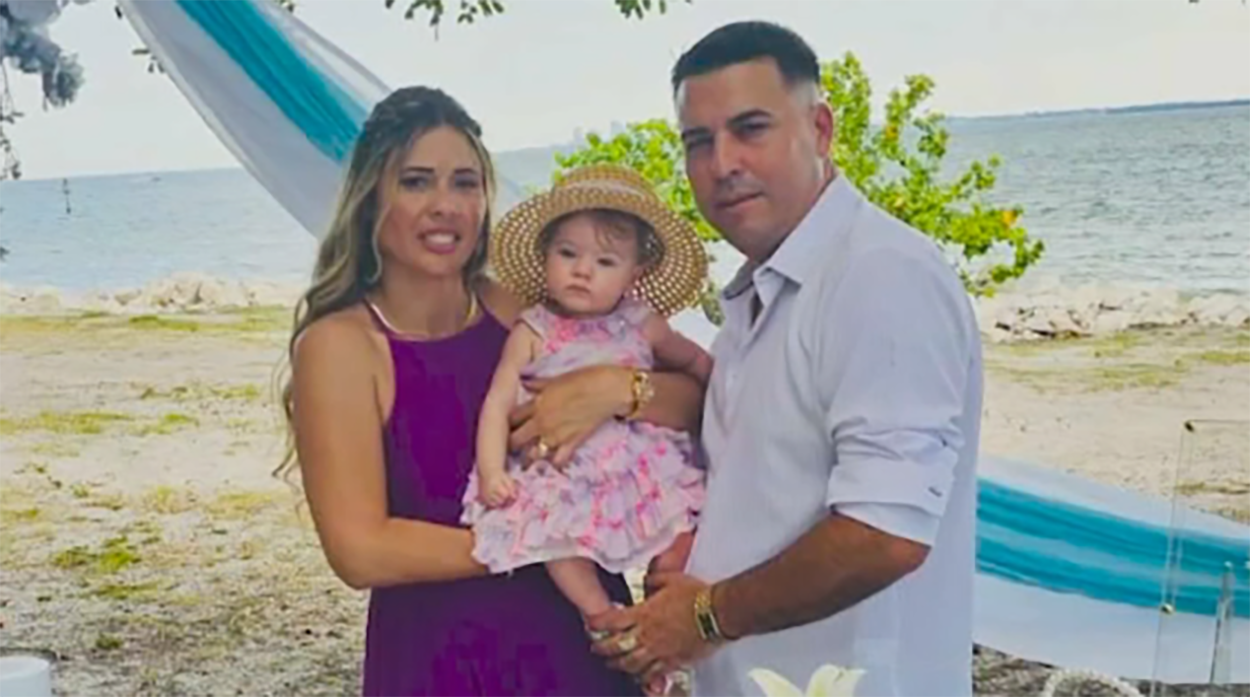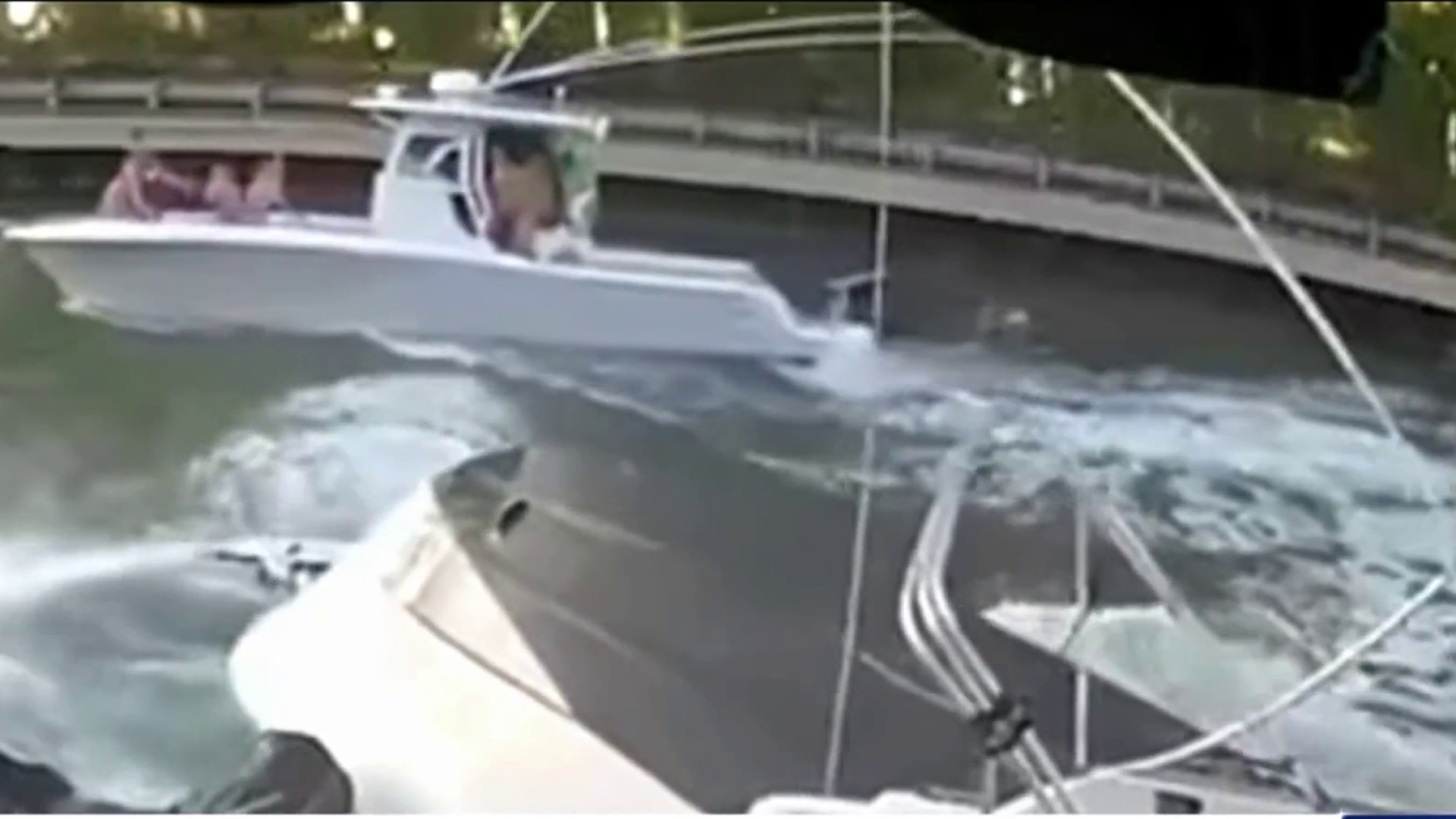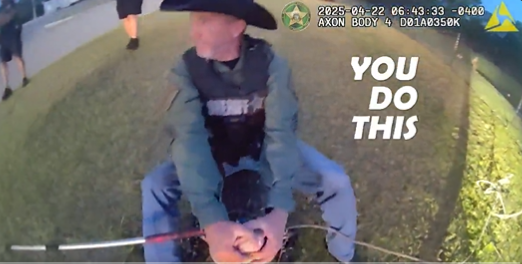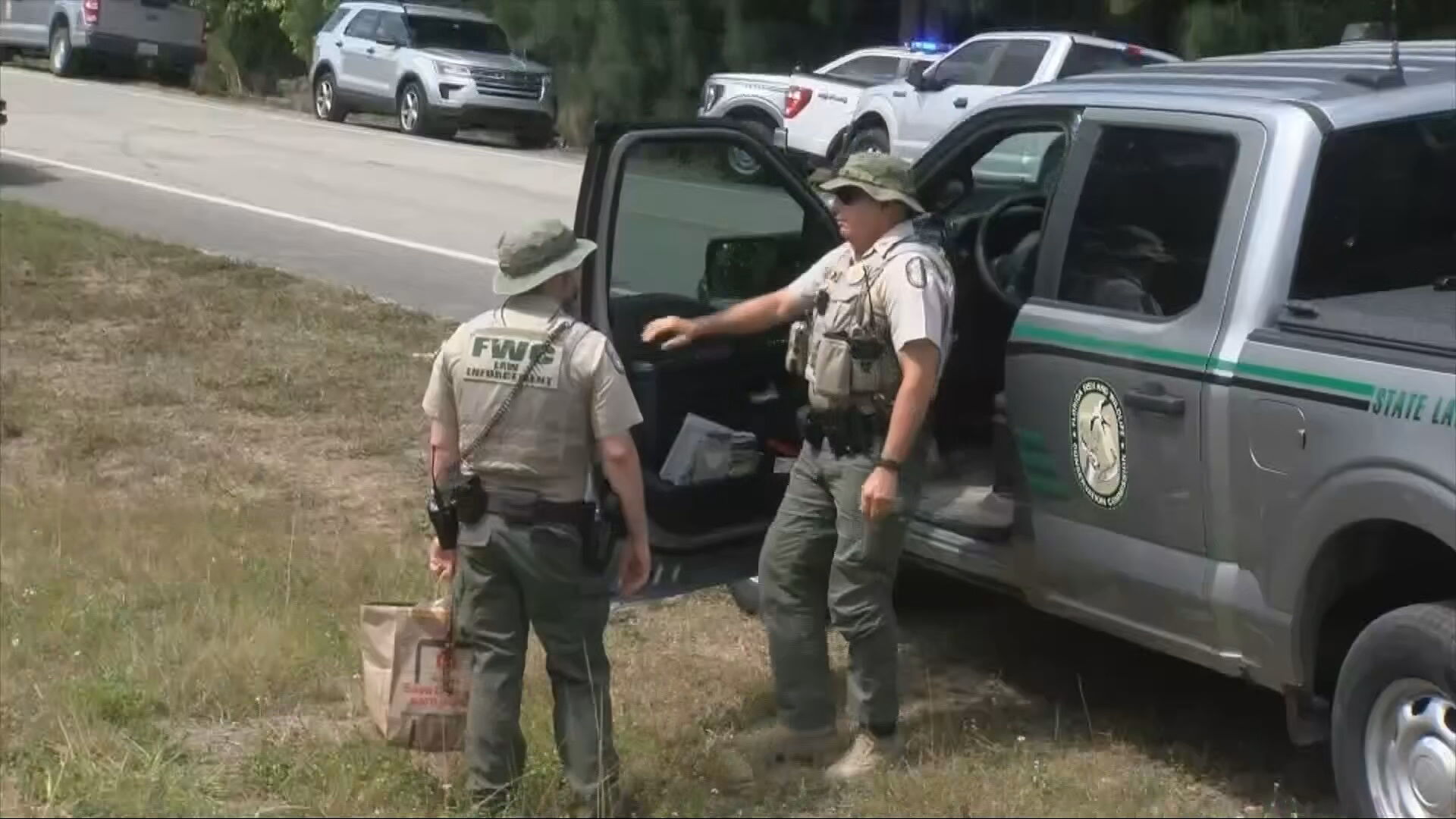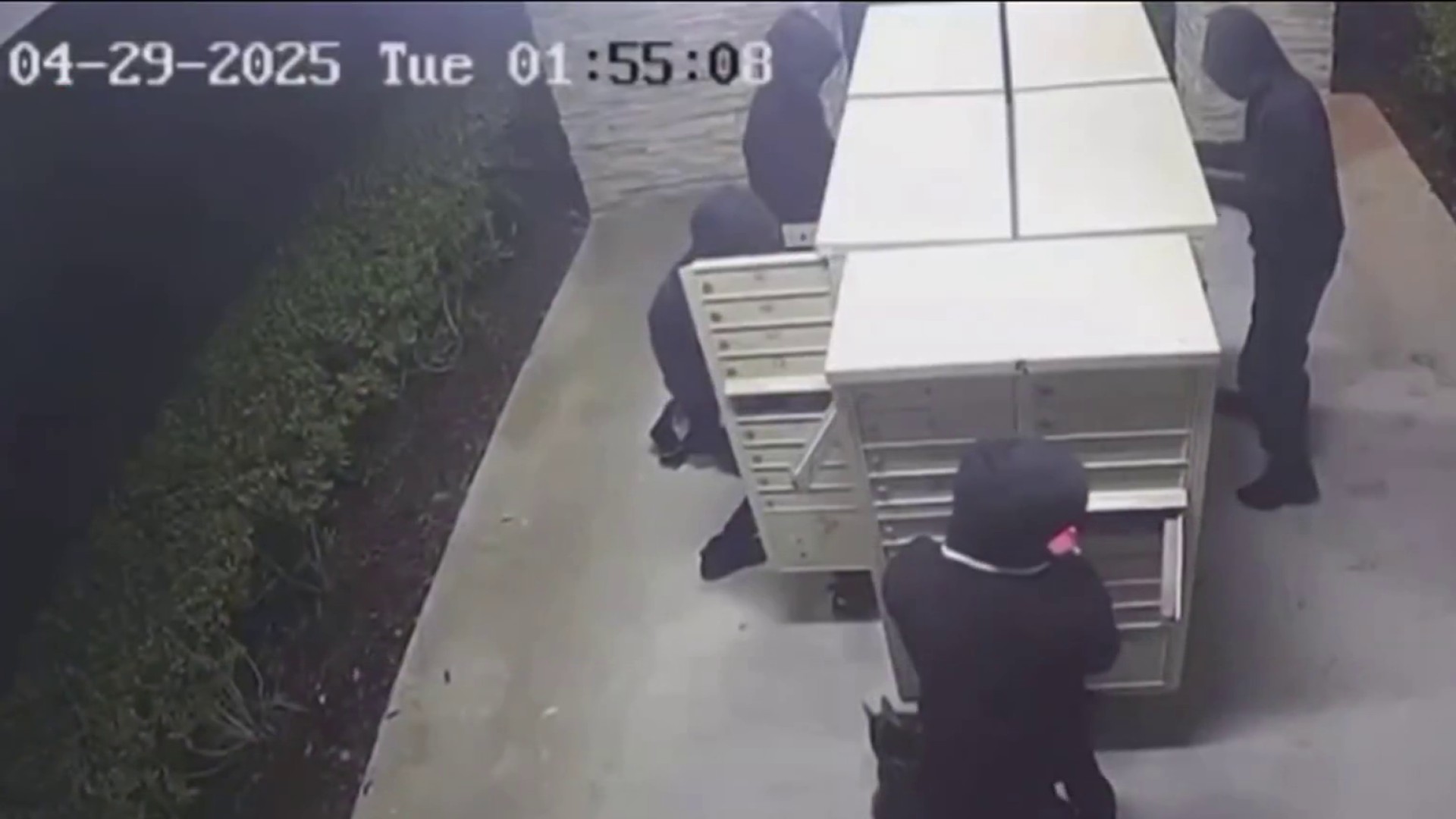Deported Cuban Mom: Attorney Fights for Her Return to US
Deported: Attorney Fights for Cuban Mom's Return to Florida
A Mother's Plea: The Story of Heidy Sanchez
Imagine being ripped away from your family, your life uprooted in an instant. That's the reality Heidy Sanchez, a Cuban mother residing in Tampa, Florida, is facing. In a heart-wrenching turn of events, Heidy was recently deported back to Cuba, leaving behind her one-year-old daughter and U.S. citizen husband. But why? How could this happen? Her attorney, Claudia Cañizares, is speaking out, shedding light on the circumstances surrounding this devastating deportation.
The Shocking Deportation of Heidy Sanchez
The details are jarring. Heidy Sanchez, a Cuban native married to a U.S. citizen and mother to a young child, was detained during a routine check-in with Immigration and Customs Enforcement (ICE) in Tampa. Just two days later, she was back in Cuba. This swift deportation has left her family and community reeling, desperate to understand how this could happen.
Unexpected Detainment
Heidy's situation is even more perplexing because, as her attorney emphasized, "She had no criminal records, she had a petition from her husband, she had a fighting chance." It's a gut-wrenching scenario, a mother separated from her child and husband, despite seemingly having a legitimate path towards legal residency.
The Attorney Speaks: Claudia Cañizares Fights Back
Claudia Cañizares, Heidy Sanchez's attorney, is determined to bring her client back to the United States. She believes Heidy's case deserves a second look and that due process was not adequately followed. What steps is she taking? And what are the legal arguments she's leveraging to challenge this deportation?
Challenging the Deportation Order
The crux of the matter lies in an outstanding deportation order from 2019. Heidy apparently missed an immigration hearing, which resulted in the order. However, Cañizares argues that Heidy's circumstances have significantly changed since then. She's now married to a U.S. citizen, she's a mother, and she has a pending petition for residency through her husband. These factors, according to Cañizares, should warrant a reconsideration of the deportation order. Isn't family unity a core value in our society?
Family and Community Rally for Heidy's Return
The support for Heidy is palpable. Over the weekend, family and friends gathered in Tampa to protest her deportation and call on politicians to intervene. Their signs and chants echoed a unified message: Bring Heidy Home!
A Community United
It's inspiring to see a community rally around one of their own. This outpouring of support highlights the human cost of immigration policies and the devastating impact deportations can have on families. The community is not just protesting; they are actively seeking legal and political avenues to bring Heidy back.
ICE's Perspective: Why Was Heidy Deported?
While the family and attorney are fighting for Heidy's return, it's important to understand ICE's perspective. They likely acted on the outstanding deportation order. But does this justify the swift deportation, especially considering Heidy's current family situation?
The Priority Enforcement Program
ICE operates under a priority enforcement program, which focuses on individuals who pose a threat to national security or public safety. However, Heidy Sanchez, with no criminal record, doesn't seem to fit this profile. So, why was her case prioritized? Was there an oversight?
The Impact on the Child: A Mother's Absence
Perhaps the most heartbreaking aspect of this case is the impact on Heidy's one-year-old daughter. The separation from her mother is undoubtedly traumatic. How does a child cope with the sudden absence of a parent?
Psychological Toll on the Child
The psychological toll on the child cannot be understated. Infants and toddlers rely heavily on their primary caregivers for security and emotional well-being. The abrupt separation from her mother could lead to anxiety, sleep disturbances, and developmental delays. Is this the kind of environment we want for our children?
The Legal Challenges Ahead: What Are Heidy's Options?
Claudia Cañizares faces a challenging legal battle. She'll need to demonstrate that Heidy's circumstances have changed significantly since the deportation order was issued and that her deportation would cause extreme hardship to her U.S. citizen husband and child.
Motions to Reopen and Stay of Removal
Cañizares will likely file a motion to reopen Heidy's immigration case, arguing that new evidence (her marriage and parenthood) warrants a reconsideration. She may also seek a stay of removal, which would temporarily halt the deportation order. The success of these legal strategies depends on convincing immigration officials and potentially the courts that Heidy deserves a second chance.
Broader Immigration Debate: A Symptom of a Larger Issue
Heidy Sanchez's case is not an isolated incident. It reflects a larger debate surrounding immigration policies and the deportation of individuals with strong ties to the United States. Are our immigration laws fair? Are they effectively balancing security concerns with humanitarian considerations?
The Human Cost of Deportation
This case underscores the human cost of deportation. It's not just about numbers and statistics; it's about families being torn apart, children growing up without their parents, and communities being disrupted. We need to ask ourselves: are these the values we want to uphold?
The Role of Politicians: Can They Intervene?
The family and community are appealing to politicians for help. Can elected officials intervene in immigration cases? While politicians cannot directly overturn deportation orders, they can advocate on behalf of individuals, raise awareness about their cases, and potentially influence the Department of Homeland Security to reconsider its decision.
Advocacy and Public Pressure
Public pressure and political advocacy can play a significant role in these situations. By bringing attention to Heidy's case, the family and community hope to pressure elected officials to intervene and advocate for her return. It's a fight for justice, a fight for family unity.
Hope and Uncertainty: The Future of Heidy Sanchez
The future for Heidy Sanchez remains uncertain. While her attorney is fighting tirelessly on her behalf, the legal process can be lengthy and unpredictable. Will she be reunited with her family? Only time will tell.
A Waiting Game
For now, Heidy, her husband, and her daughter are caught in a waiting game, hoping for a positive outcome. The emotional toll on the family is immense, but they remain resilient, fueled by the hope of a reunion.
Two Mothers Deported: A Troubling Trend
Heidy's case is part of a disturbing trend. NBC Miami reported that in recent days, Immigration and Customs Enforcement agents have deported two mothers: one with her U.S. citizen 2-year-old child and another without her child. This raises serious questions about ICE's enforcement priorities and the impact on families.
Are Families Being Targeted?
The deportation of two mothers in such a short period raises concerns that families are being targeted. While ICE maintains that it prioritizes individuals who pose a threat to public safety, these cases suggest that even individuals with no criminal record and strong family ties are vulnerable to deportation. Is this the message we want to send?
The Need for Immigration Reform: A Call to Action
Cases like Heidy Sanchez's highlight the urgent need for comprehensive immigration reform. Our current system is broken, leading to the separation of families and the deportation of individuals who contribute to our communities. We need to create a more humane and just immigration system.
A Path to Citizenship
Immigration reform should include a clear and accessible path to citizenship for undocumented immigrants who have strong ties to the United States, have no criminal record, and contribute to our economy and society. It's time for Congress to act and create a system that reflects our values.
Conclusion: Justice for Heidy and Her Family
The case of Heidy Sanchez is a stark reminder of the human cost of our current immigration policies. A mother separated from her child, a wife torn from her husband, all because of an outdated deportation order. Her attorney is fighting for her return, her community is rallying in support, and the hope remains that justice will prevail. This case underscores the urgent need for immigration reform that prioritizes family unity and human dignity. Will Heidy see her daughter again in the United States? That is the question on everyone's mind.
Frequently Asked Questions
- What is the legal basis for Heidy Sanchez's deportation?
Heidy was deported based on an outstanding deportation order from 2019, issued after she missed an immigration hearing. The current legal challenge centers on arguing that her changed circumstances (marriage to a U.S. citizen and motherhood) warrant reopening the case.
- What are the potential legal avenues for Heidy's return to the U.S.?
Her attorney is likely pursuing a motion to reopen her immigration case, arguing that new evidence justifies a reconsideration of the deportation order. She may also seek a stay of removal, which would temporarily halt the deportation order.
- How can the public support Heidy Sanchez's case?
The public can support Heidy by contacting their elected officials, raising awareness about her case on social media, and supporting organizations that provide legal assistance to immigrants.
- What are the potential long-term effects of deportation on children?
Deportation of a parent can have significant psychological and emotional effects on children, including anxiety, depression, behavioral problems, and difficulties in school. The separation can also disrupt the child's sense of security and stability.
- What does "priority enforcement" mean in the context of ICE deportations?
"Priority enforcement" refers to ICE's policy of focusing on individuals who pose a threat to national security or public safety, such as those with criminal records. However, critics argue that ICE's enforcement priorities are not always consistently applied and that individuals with no criminal record and strong family ties are still being deported.
